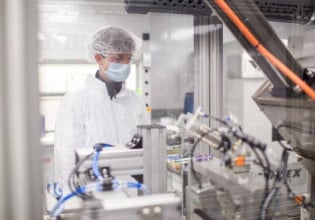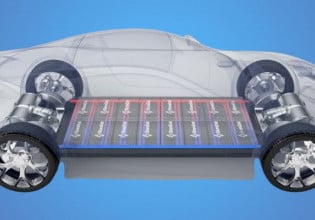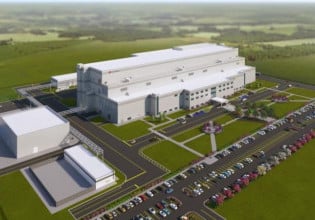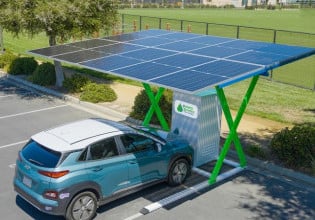Electrovaya Inc. announced that the European Commission has invited the Company’s fully owned subsidiary, Litarion GmbH, to participate in the proposed EU Battery Alliance strategic initiative, and Litarion has accepted the invitation.
The initiative is being called an “Airbus for batteries” and was launched on October 11 with the assistance of the EU and a suite of largely German firms, including automakers Daimler, engineering company Siemens and chemical group BASF. French car giant Renault was also invited to the gathering, which aims to promote a consortium of invested players across Europe eager to improve the competitiveness of cell manufacturing.
At the time of the initial announcement (see picture at the beginning of this article), Vice-President for Energy Union Maroš Šefčovic commented, “The process launched today is of an inclusive nature.”
The Commission is clear that, while support from the Commission, the European Investment Bank and some Member States is important, the lead needs to stay with the industry. Others invited to participate in the proposed Alliance include battery-users like European automotive companies, in addition to materials suppliers and technology partners.

Litarion has installed production capacity of approximately 500 MWh of electrodes and separators, the key components in a Lithium Ion cell. Litarion believes this is one of the largest installed capacities of any company in Europe and that it can contribute to the proposed Alliance through its production capabilities, technology excellence, know-how and experience in the field.
Vice-President for Energy Union Maroš Šefčovic following the launching of this project for battery development and production in Europe made the following comments:
“Today I heard the EU industry and the Member States' determination to work together and pull in the same direction. They strongly supported the establishment of a full value chain of batteries in Europe, with large-scale battery cells production, and the circular economy, at the core.
“Batteries are at the heart of the ongoing industrial revolution. They represent a key enabling technology in the context of the Energy Union. Their development and production play a strategic role in the ongoing transition to clean mobility and clean energy systems. Batteries embody our ambition, as set out in President Juncker's State of the Union, to help our industries remain or become world leaders in innovation, digitization and decarbonization.
“As was recalled by the actors in our meeting, we are at a critical juncture.
“The lack of a domestic, European cell manufacturing base jeopardizes the position of EU industrial customers because of the security of the supply chain, increased costs due to transportation, time delays, weaker quality control or limitations on the design.
“So, we need to act fast - and collectively - to overcome this competitive disadvantage and capitalise on our leadership in many sectors of the battery value chain, from materials to system integration and recycling.
“Due to the level and urgency of investment needed, this cannot be done in a fragmented manner. It needs a Europe-wide approach.
“Members of the EU industry and innovation community will drive this process, working in close partnership with the European Commission, the European Investment Bank and interested Member States, to establish a competitive manufacturing chain, capture sizeable markets and boost jobs, growth and investment across Europe.
“Since time is running out, we concluded that we will join our efforts to come up with a strategic plan early next year. This could take the form of a comprehensive roadmap for an EU Battery Alliance, to be presented in February 2018, at the Clean Energy Industrial Forum, as part of the EU Industry Days.
“The work starts immediately. Following today's high-level meeting, we will organize a number of working groups, including on the supply chain, investment financing and engineering, trade issues, research and innovation, and others. Industrial participants will take the lead, express interest to participate in or even be rapporteur for each work strand.”






